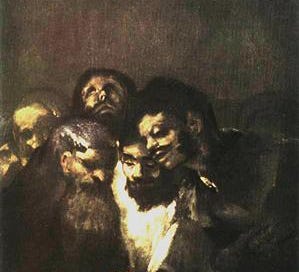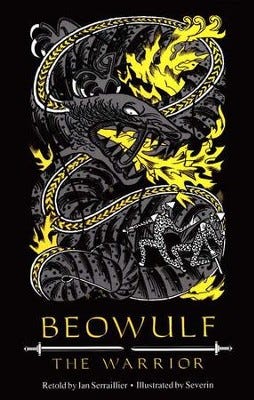Welcome to my newest readers, listeners, fellow bibliophiles, and educators!
In early June,
wrote “The Decline of Reading Starts with the Reasons We Read.” It quickly spurred me to begin another book on reading that I was set to review for Front Porch Republic.Thus began a horrible struggle.
I didn’t like the first chapter or the next one. I thought the suggested classroom practices were things any ‘good teacher’ would already know. I pushed myself to continue and was disturbed by what came across as hypocrisy in several chapters on charitable reading. I emailed the editor and said I couldn’t do it.
I hate negative reviews. If I don’t like a book, I don’t write about it or rate it on GoodReads or anywhere. My reasoning is simple. Do unto others.
The editor emailed back and said good reviews include the critical too. They’re hard to write (I’d say excruciating), but worthwhile. A few days later I submitted my piece, he took it apart and restitched it, I made changes, spat and polished those words.
A Challenge in Charity: A Review of Deep Reading came out two weeks ago, and lo, no nasty email came my way. In fact on Facebook one former professor recognized the struggle and praised the review for being both charitable and critical. And by critical, he meant proper analysis. He had my attention. Had I done something good? Can a negative review be good?
He wrote to suggest reading another book—R. R. Reno's The Return of the Strong Gods: Nationalism, Populism, and the Future of the West (2019). I summarize my professor, Dr. Michael Young—
In it, Reno argues that after WWI and WWII the general consensus among European and American leaders was to emphasize openness to a fault and to weaken strong commitments and criticism so that we avoid the disasters of the 20th century. The thought is that extreme loyalty to leaders, ideals, systems weakens us. Reno argues that such a consensus of openness has weakened a sense of community and belonging. The exaggerated practice of openness undermines any assertion of truth or goodness over and against any other claims of truth and the good.Reno’s argument appears to apply to society as a whole. Is being too open and understanding a malaise? Has it become ungenerous? Has it unknowingly infected us all? If so, I wonder if it hides under the guise of hospitality. I must read Reno for myself!
In the classroom
In addition to being an administrator, I am teaching 8th grade Medieval Humanities this year. I haven’t taught the medieval era in over a decade, but I’m looking forward to rediscovering and reading texts anew. Already I’ve read a new-to-me translation of Beowulf, Marie de France’s Lais, and bits of Plutarch under the amazing guidance of Anne White. Her Plutarch Primer and Practical Plutarch are gems!
I know I don’t want to be a hostile reader, nor do I want that for my students. My aim is to be a charitable one, one who acknowledges that reading has the potential to form me and my students not only for the better but for the eternal. I know, however, that it is easier to aspire to this attitude than to consistently embody it.
And that is my classroom challenge for the year. Can I, in fact, lead my students to be both hospitable and critical? What will that look like, or better yet, sound like?
I would love to hear from you in your reading or classroom journey.
I’ll return to more reading and writing updates next time. As always, thanks for reading and listening! And don't forget that the List Library at my website is always available to you, my readers.
Christine
artist note from WikiArt: Men Reading is one of Goya's fourteen pinturas negras painted late in his life when he was living outside of Madrid. He was in physical pain and was disillusioned by the political direction of Spain when he painted these bleak frescoes onto the walls of the Quinta del Sordo (House of the Deaf Man). He had become deaf after a prolonged illness. The bleak tone and expressions of the men somehow resonated with me and my struggle to think through a critical review.





